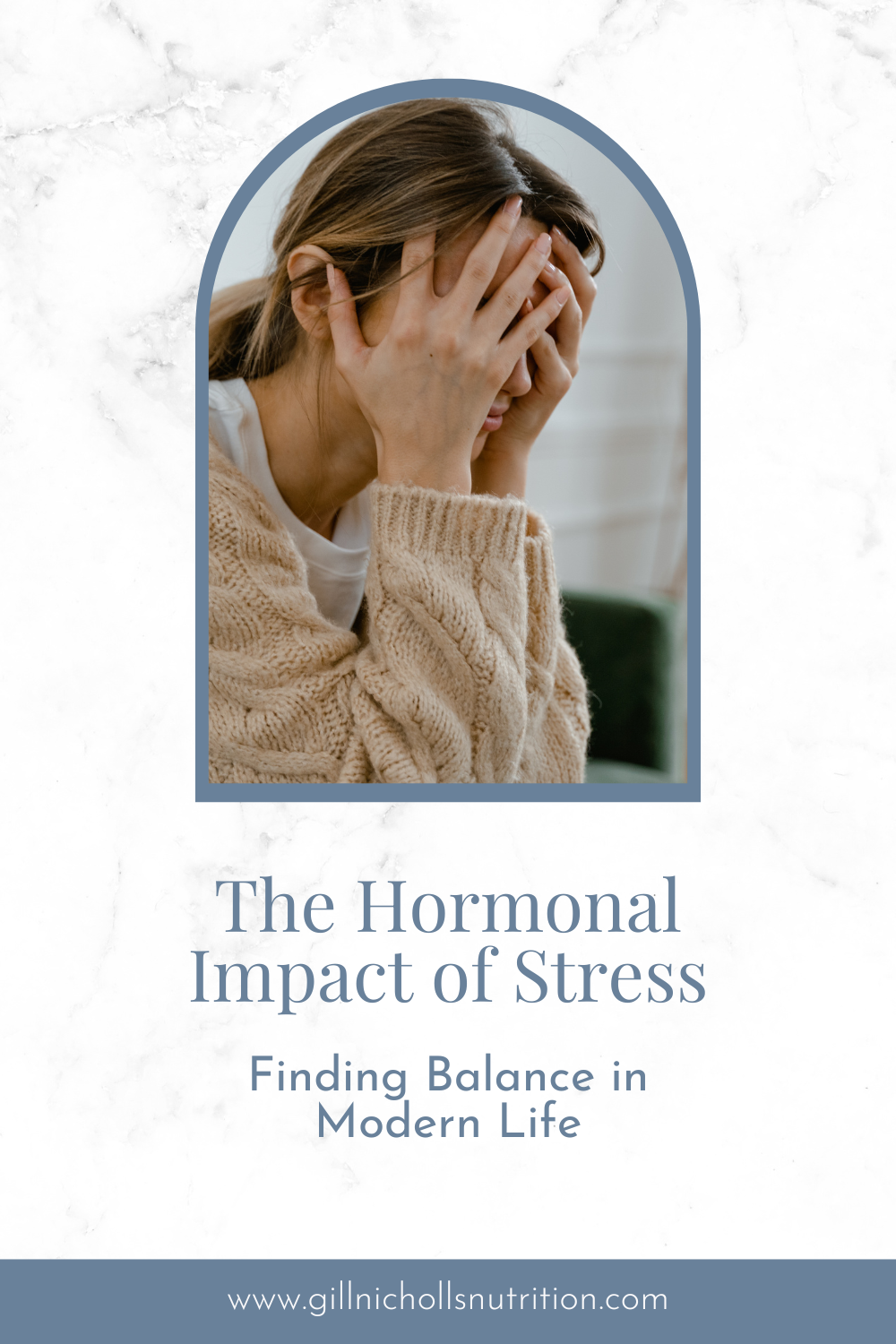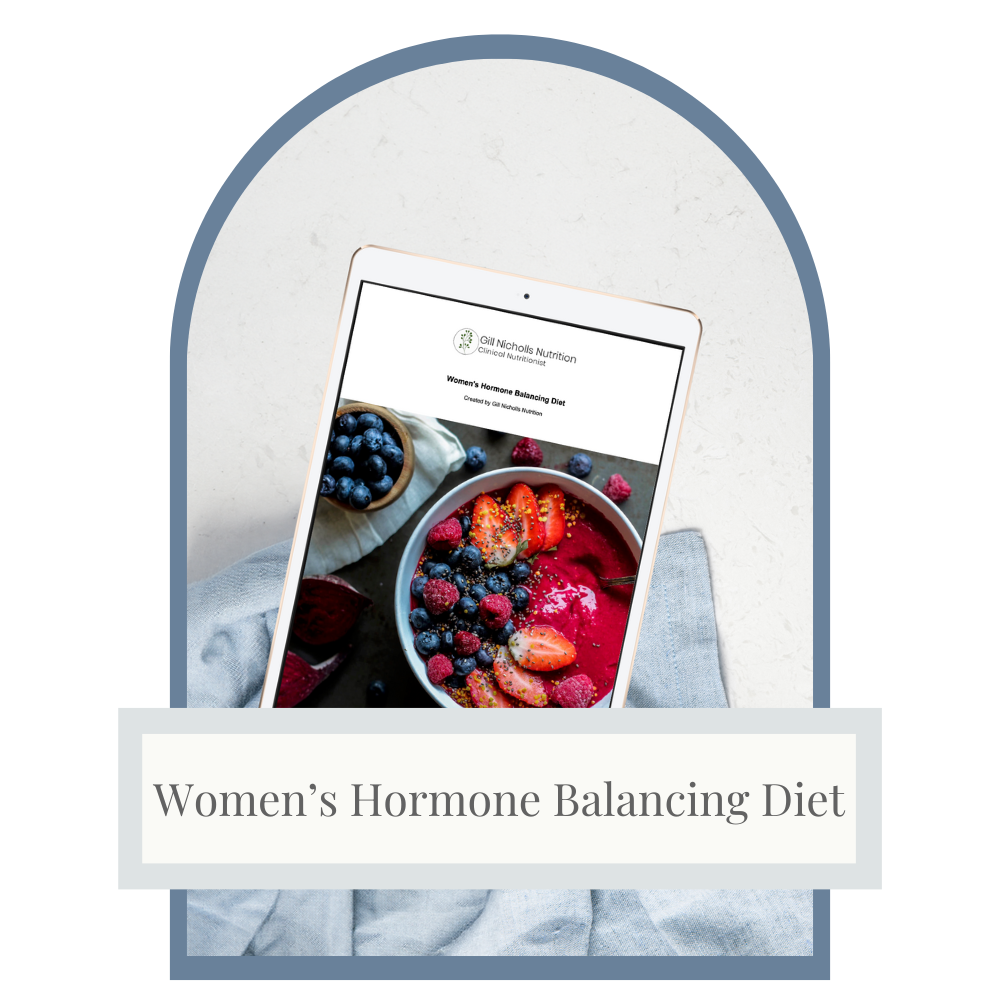The Hormonal Impact of Stress: Finding Balance in Modern Life
Hormones serve as the body's messengers, orchestrating various vital functions, from metabolism and growth to immune response and reproduction. Achieving and maintaining hormonal balance is critical because even minor imbalances can lead to a wide range of symptoms and health issues, including mood swings, weight gain, anxiety, depression, acne, low libido, sleep disturbances, fatigue, and even chronic health conditions.
Common hormonal imbalances encompass disruptions in cortisol (the stress hormone), thyroid hormones, and sex hormones such as oestrogen and testosterone.
The Stress Response: A Closer Look
The body's stress response, often known as "fight or flight," is a survival mechanism deeply rooted in our evolutionary history. When confronted with a perceived threat, the adrenal glands release cortisol, a stress hormone, to prepare the body for immediate action. While this response can be life-saving in acute situations, chronic stress can lead to an overactive stress response and sustained elevated cortisol levels.
The Pregnenolone Steal: Unveiling the Hormonal Mystery
Chronic stress can initiate something called the "pregnenolone steal." I know it might sound complex, but bear with me, because understanding this can be a game-changer.
The "pregnenolone steal" is your body's way of prioritizing stress hormone production over other hormones, including progesterone. Now, why does this matter? Well, low levels of progesterone can set off a hormonal imbalance, leading to a condition known as estrogen dominance. This hormonal imbalance brings along a host of symptoms such as mood swings, headaches, bloating, heavy bleeding and more.
Impact on Thyroid and Weight Gain
Chronic stress's effects on hormonal health extend to the thyroid gland. The Hypothalamic-Pituitary-Thyroid (HPT) axis regulates thyroid hormone production. Prolonged stress can suppress the HPT axis, leading to decreased thyroid hormone levels. When thyroid hormones are low this can result in fatigue, weight gain, low mood and feeling.
Furthermore, chronic stress can reduce the conversion of T4 (thyroxine) to T3 (triiodothyronine), the active form of thyroid hormone. Stress may promote the conversion of T4 to reverse T3 (rT3), an inactive form of the hormone. These elevated rT3 levels can further contribute to thyroid dysfunction and hinder metabolic processes, leading to weight gain.
Reverse T3 (rT3) and Hormonal Imbalance
Reverse T3, often abbreviated as rT3, is an inactive thyroid hormone that can be produced in response to chronic stress. Ironically it is a protective measure so that the body doesn’t lose weight during times of stress. But elevated rT3 levels can disrupt thyroid function and metabolic regulation that lead to weight gain, fatigue, and mood disturbances. Understanding the impact of stress on rT3 levels is crucial in addressing hormonal imbalances.
Nutrient-Rich Diet: A Pillar of Hormonal Balance
Dietary choices are one of the fundamental pillars of maintaining hormonal balance. The foods you consume can either support your body's stress response or contribute to its dysregulation. Here's how a nutrient-rich diet can play a pivotal role in achieving and sustaining hormonal harmony:
Supporting the Stress Response:
Healthy Fats
Foods like avocados, nuts, and seeds are rich in healthy fats, including omega-3 fatty acids. These fats provide the essential building blocks for the production of steroid hormones, such as cortisol, which is a key player in the stress response. When you consume these fats, you provide your body with the raw materials it needs to produce hormones that can help you manage stress more effectively.
Zinc
Zinc is a vital mineral that plays a significant role in immune function and hormone regulation. It can be found in seeds, meats, and dairy products. Including zinc-rich foods in your diet helps support the proper functioning of the Hypothalamic-Pituitary-Adrenal (HPA) axis, the body's central stress response system. A well-functioning HPA axis is crucial for managing stress and maintaining hormonal balance.
Dark Leafy Greens
Vegetables like spinach, kale, and Swiss chard are excellent sources of magnesium, a mineral that supports the regulation of stress hormones. Magnesium helps relax muscles and can contribute to a sense of calm. By incorporating dark leafy greens into your diet, you're providing your body with an essential nutrient that aids in stress management.
Vitamin B6
Poultry and fish are rich sources of vitamin B6, also known as pyridoxine. This vitamin is involved in the synthesis of neurotransmitters like serotonin and dopamine. Imbalances in these neurotransmitters can lead to mood disorders like anxiety and depression. Consuming foods high in vitamin B6 can contribute to smooth hormone balance and improved mood regulation.
Vitamin C
Your adrenal glands, which play a crucial role in the stress response, benefit from vitamin C. Citrus fruits, strawberries, and bell peppers are excellent sources of this vitamin. Adequate vitamin C intake helps support the health of your adrenal glands, allowing them to function optimally during times of stress.
A nutrient-rich diet lays the foundation for a robust stress response system. When you consume foods rich in essential nutrients like healthy fats, zinc, magnesium, and vitamins, you provide your body with the tools it needs to manage stress effectively. These nutrients contribute to hormone production, immune function, and mood regulation, all of which are integral to the stress response.
Stress Reduction Strategies
In addition to dietary choices, implementing stress reduction strategies is crucial for maintaining hormonal balance. Here are some effective ways to manage and reduce stress in your daily life:
Mindfulness and Deep Breathing:
Incorporating mindfulness techniques and deep breathing exercises into your daily routine. Deep, intentional breathing sends signals to your body that it's safe, reducing stress hormone production.
Regular Exercise:
Engaging in regular physical activity can reduce stress and promote the release of endorphins, the body's natural mood enhancers. Whether it's yoga, brisk walks, or dancing, find an activity that brings you joy and gets your body moving.
Adequate Sleep:
Prioritise quality sleep, as it is vital for hormonal regulation. Chronic stress can disrupt sleep patterns, affecting the production of melatonin, a hormone crucial for restful sleep.
As discussed, a nutrient-rich diet supports hormonal balance. A nutrition consultation provides personalised guidance on nutrition and supplements tailored to your specific needs.
The intricate relationship between chronic stress and hormonal health underscores the need for proactive stress management and mindful dietary choices. By understanding the scientific mechanisms behind stress's impact on hormones, including the "pregnenolone steal," and the role of a nutrient-rich diet in supporting the stress response, we empower ourselves to make informed choices that promote overall well-being.
Start your hormone balancing journey, with the 7-day Women’s Hormone Balancing Meal Plan
Restore harmony to your hormonal system with our Women's Hormone Balancing Plan. Crafted to address hormonal imbalances, this plan includes foods known to regulate estrogen and progesterone levels while supporting overall reproductive health. Indulge in nourishing foods and nutrients to promote hormonal equilibrium, and alleviate symptoms of PMS.
Loved this post?
Pin it for later




